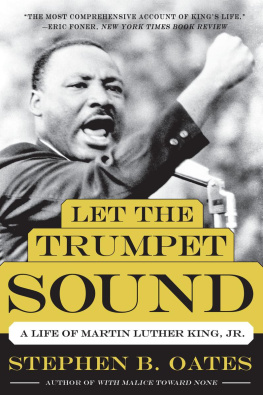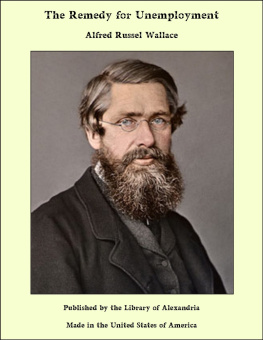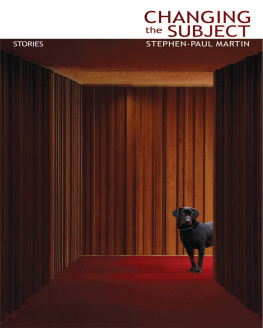Martin Stephen - The Desperate remedy
Here you can read online Martin Stephen - The Desperate remedy full text of the book (entire story) in english for free. Download pdf and epub, get meaning, cover and reviews about this ebook. genre: Detective and thriller. Description of the work, (preface) as well as reviews are available. Best literature library LitArk.com created for fans of good reading and offers a wide selection of genres:
Romance novel
Science fiction
Adventure
Detective
Science
History
Home and family
Prose
Art
Politics
Computer
Non-fiction
Religion
Business
Children
Humor
Choose a favorite category and find really read worthwhile books. Enjoy immersion in the world of imagination, feel the emotions of the characters or learn something new for yourself, make an fascinating discovery.

- Book:The Desperate remedy
- Author:
- Genre:
- Rating:3 / 5
- Favourites:Add to favourites
- Your mark:
- 60
- 1
- 2
- 3
- 4
- 5
The Desperate remedy: summary, description and annotation
We offer to read an annotation, description, summary or preface (depends on what the author of the book "The Desperate remedy" wrote himself). If you haven't found the necessary information about the book — write in the comments, we will try to find it.
The Desperate remedy — read online for free the complete book (whole text) full work
Below is the text of the book, divided by pages. System saving the place of the last page read, allows you to conveniently read the book "The Desperate remedy" online for free, without having to search again every time where you left off. Put a bookmark, and you can go to the page where you finished reading at any time.
Font size:
Interval:
Bookmark:
Martin Stephen
The Desperate remedy
'Enecessario a chi dispone una repubblica, ed ordina leggi in quella, prassuppoie turn gli nornini rei, e chli abbiano sempre a usare la malignita dello animo loro, qualunque volta ne abbiano libera occasione.'
('It is necessary for him who lays out a state and arranges laws for it to presuppose that all men are evil and that they are always going to act according to the wickedness of their spirits whenever they have free scope.')
Niccolo Machiavelli, 1469-1527Prologue
It was a murderer's moon, with dark, scudding clouds hiding the stars. The soldier moved quickly but silently through ebony night, his stride confident and determined. London was deserted this long after midnight, yet still he was careful, gliding close by the sides of the darkened buildings. He had no fear of the Watch, feeble and infirm as it was, but on his business all complications were best avoided, however minor. Tall, dark and powerful, his mop of red hair was invisible beneath the hat pulled firmly down across his brow.
He arrived at the place, and drew back into an opposite doorway, waiting. He heard the courtier long before he saw his shadow arrive at the door, panting with exertion. The storm lantern was shaking in the courtier's hand. He moved out from the shadow of the door' way and heard the other's indrawn breath of fear, before recognition struck. The courtier might be the finest of servants at Court, bowing and scraping his way up the arse of his masters. He might be lord of all he surveyed below stairs. He was certainly a trusted secretary of one of the most powerful men in England. Yet here, in this place, he was a frightened little man, on his master's orders, in a dark cloak and borrowed boots. He paid for his pleasure and his vanity by this meeting in a dark place.
The soldier smelt the familiar stench of fear on the courtier, who scuttled to the door like a frightened rabbit, but he did not show his contempt. He had made a career of hiding behind the bluff manner of a simple man. Deceit was second nature to him. He was even sympathetic to the stinking wretch, enquiring solicitously in a hoarse whisper if he was ready to enter the cellar. A curt, nervous nod was the answer to his pains.
It was a marvellous thing, the soldier's lantern. Its flame had been lit in the man's lodgings, and then locked away behind the ingenious shutters. The flame could breathe, but yet it could not be seen. He opened one of the shutters, and the thin light gleamed on to the lock of the ancient oak door. He drew the key from his purse, and the well-greased tumblers moved solidly and silently back.
The courtier gagged as their feet kicked up the dust of ages. He cursed under his breath as he cannoned into one of the stone pillars that held up the cellar, feeling the fear in the pit of his stomach. He fell back on to a pile of ancient hangings, discarded since Henry VIIIs days and left to moulder. More dust rose up and coated their dry tongues. The soldier paused, courteous as ever, his thoughts hidden behind the craggy, pleasing mask of his face.
They reached a pile of faggots and brushwood.
The soldier opened the other shutters on his cloaked lantern. He placed it on the floor. His shadow and the courtier's shadow danced briefly on the ancient walls, elongated, cutting through the mingled smells of fresh wood and decay. He cleared a path through the wood, revealing a stained barrel. Its lid had already been prised open and lay, resting loose, across its top. He took his dagger and flipped the lid to one side. He spoke in a low voice, for all that they were alone.
'Here, you see it?'
There was the tiniest of echoes through the long vaulting. He reached his left hand into the barrel and drew out a handful of the gritty powder within it, holding out his hand to the courtier.
The courtier looked nonplussed.
'It's decayed the soldier explained, as if to a child. 'If gunpowder's badly stored, or if it's stored too long, the elements disperse. If they do, it won't explode, but only burn with a fierce fire.' He looked at the cringing figure of the courtier, his face dripping with sweat. 'Fades away. Like a man with too much ale in him,' he added unnecessarily.
The courtier reached out, taking a pinch of powder between shaking finger and thumb. He looked at it, pretending to a knowledge he did not have. He had eagerly claimed to know of gunpowder, to have experience of it, seeing advancement and the favour of his master by his pretence of knowledge.
'Yes,' he muttered, 'I see. In faith, in true faith, I see.'
He looked up into the soldier's face. It was impassive, as ever. Faith, the soldier was thinking, true faith, is something you will never have.
'I shall tell my master so.'
And what is it that you see? the soldier thought. A fine new robe, perhaps, or a jewel to adorn your finger, or even a purse with thirty pieces of silver in it? Or a bucking whore beneath you in your fine bed? Whatever you see, it is not the powder thrust in your face. Nor, in mercy to your miserable little soul, do you see or even dream of the truth. Because if you even wondered at it, your soul would shrivel in the flames of Hell. He kept his thoughts silent, as always. He merely nodded. He flicked the lid back on the powder barrel with the dagger held in his right hand. He looked down at the courtier.
'I must check the other doors. Will you cover the barrel with the wood? I'll leave you the lantern.'
The courtier had no option. As he scrabbled to replace the faggots, the soldier retreated to the nearest archway, resting his body behind it. Let the popinjay put back the wood. Let him experience servitude. What matter if he did it badly? His master was hardly likely to order the cellars searched. Or at least, not yet.
He emerged when the scrabbling noises ceased and the courtier's shadow calmed down from its avid dance on the walls. He closed the lantern down to one shutter.
He bade the courtier farewell by the open door of the cellar, hearing him squelch, stumble and mutter his way home through the pitch-black night. He waited until the noise of his going faded into echoes and then died completely. He listened then, in total silence, for a full quarter of an hour. Not a dog howled, not a mouse stirred. There was only the thin whistle of the wind in the eaves. He was safe.
He bent down and silently inserted key into lock. He turned it, securing the house and its cellar behind him, and with the same hand drew down the last shutter on the lantern. He listened in total stillness for a further five minutes or so.
The soldier opened up his clenched left fist. A thin, sharp residue of powder lay within it, stuck to the sweat on his palm. Not decayed powder. Not separated powder. Not powder ruined by damp. Wholesome, fine-ground powder. Powder in prime condition. The best powder. Powder ready to blow to Hell or to Heaven those above it when it was lit.
Guido Fawkes, or Guy Fawkes as he was known in England, made his way silently homeward through the dark streets, allowing a rare, thin smile to cross his lips.
Chapter 1
Will Shadwell froze in terror. There was the noise again.
Behind him, somewhere in the enveloping and impenetrable dark. He had heard it once before, a tiny crack like a twig breaking and the briefest rustling. Imagination? A cow, a sheep? Some idiot peasant's hog stirring in the field? Or men with knives destined for Will Shadwell's back, creeping up on him through the black silence?
He had trudged on, as the sun had hung like a raw orange ball over the horizon's razor edge, taking an age to set. The sense of danger, the fear, were ever present, tingling his bones. Something was wrong. He knew it.
Hot tears of self-pity welled up in him, burnt his eyes against the cold of the night. He was crouched low in a dry ditch, the dust in his nose and mouth, the debris of a country track already working its way inside his doublet and scratching against his skin. He had never felt more alone or more in terror of the nameless things hidden in the vast sweep of the flat countryside. He was holding back his breath, despite the red-hot iron bars in his chest, the impossible urge to scream and run. He had never meant to be on the road in the middle of the night. It was the horse's fault, that damned animal. He knew nothing of horses, could hardly ride. It had looked as good as any other in the dim light of the early morning, rolled its mad eyes at him like any other horse. He had thrashed it into action, hurling it towards Cambridge and the only man to whom he could turn, the panic driving him on and communicating itself to the animal beneath him. He had to see Henry Gresham. Gresham. The only man he could turn to, the only man who would know what to do with the terrible secret Will Shadwell had stumbled on, the secret he carried only in his head. The only man who might stop this terrible pursuit, take the wolves off his back.
Font size:
Interval:
Bookmark:
Similar books «The Desperate remedy»
Look at similar books to The Desperate remedy. We have selected literature similar in name and meaning in the hope of providing readers with more options to find new, interesting, not yet read works.
Discussion, reviews of the book The Desperate remedy and just readers' own opinions. Leave your comments, write what you think about the work, its meaning or the main characters. Specify what exactly you liked and what you didn't like, and why you think so.







